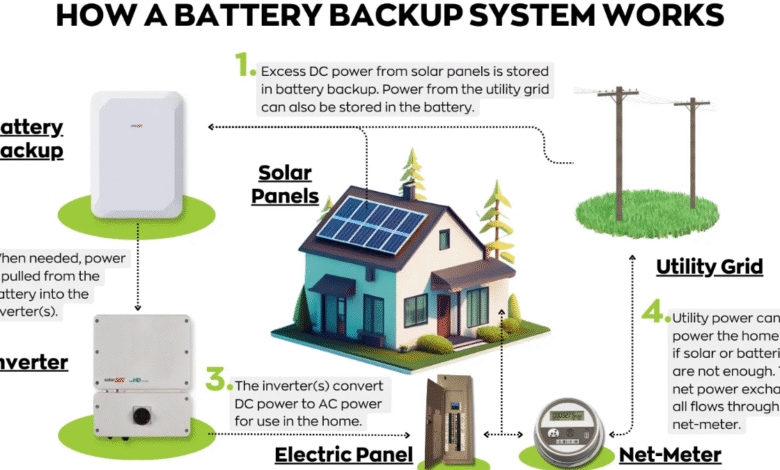Why Backup Power Is Becoming a Household Essential

Key Takeaways:
- Backup power usage is growing as power grid reliability decreases.
- Homeowners have more backup system choices than ever before.
- Proper system sizing, installation, safety, and upkeep are crucial.
- Adding backup power can boost home value and appeal.
Why Backup Power Matters
Modern life depends heavily on electricity, from keeping food cold to running climate control and connecting to the world. Yet, extended blackouts are becoming more common due to severe weather and a strained grid. The U.S. Department of Energy reveals that the frequency and duration of outages have steadily risen nationwide. When a blackout strikes, the risks and inconveniences are immediate—spoiled food, lost work time, and compromised safety for vulnerable household members.
Many homeowners now consider backup solutions a core part of their emergency plans. Options abound, and local choices such as Gainesville backup power companies offer an entry point for comparing features, capacities, and setups. No matter where you live, planning ahead means greater peace of mind and continuity when storms, accidents, or grid failures hit without warning.
Types Of Backup Power Systems
Backup systems today offer more flexibility and efficiency than ever before. Standby generators stay installed outside the home and activate automatically during outages, running off natural gas or propane. They offer seamless transitions and can supply power to most home circuits. Portable generators provide a more budget-friendly option. While reliable, they require manual starting, fueling, and placement, serving best for shorter outages or a smaller set of appliances. Meanwhile, battery and solar power backups have quickly gained popularity. These systems can store energy—often using solar panels—and deliver quiet, zero-emission power. While most are sized for basic essentials, newer batteries deliver enough capacity for larger home loads during an outage.
Choosing the Right Solution for Your Home
The ideal backup system depends on your location, home size, and which devices you most need to keep powered. Start by listing critical items, such as refrigeration, sump pumps, or medical equipment, and adding up their power usage. Sizing your system correctly prevents overloads during an outage. A portable generator or smaller battery setup may suffice in regions where weather-related outages are rare and brief. Investing in a whole-home generator pays far greater dividends for households where outages are lengthy or frequent, or where there’s a need for uninterrupted comfort and safety. Checking local codes and securing permits is also crucial before installation.
Installation and Maintenance Essentials
No matter which system you select, proper installation is vital for safety and reliable operation. Licensed electricians should be used—especially for standby systems—to ensure the backup power connects seamlessly and only supplies necessary circuits. A transfer switch is highly recommended for safely switching between grid and backup power. Maintenance routines are equally essential: generators need periodic oil changes and test runs, and batteries require occasional system checks.
Common Mistakes to Avoid With Backup Power
Routine errors can undermine even good backup power plans. Undersizing systems, improper fuel storage, or skipping maintenance will leave you unprepared when outages strike. Always buy backup equipment rated slightly above your calculated needs, store fresh fuel safely, and stick to a regular testing schedule. Never operate gas generators inside garages or enclosed spaces due to the risk of carbon monoxide. And avoid do-it-yourself electrical work—professional installations pay off in safety and reliability.
Safety Tips For Home Generators
Backup generators should only be run outdoors, far from windows and doors. Heavy-duty, outdoor-rated cords are essential for safe operation. Install carbon monoxide detectors throughout the home to catch any leaks before they become dangerous. Battery and solar backup systems require fewer safety precautions but require periodic inspection for wear, damage, or connectivity issues. Following best practices ensures that your safety matches your preparedness.
How Backup Power Impacts Home Value
A modern, professionally installed backup system can add value to your property. Homebuyers and insurance companies increasingly recognize the importance of resilient infrastructure, especially in areas prone to utility interruptions. In competitive markets, a backup power solution is an asset that may help your home stand out, delivering peace of mind and practical protection for years ahead.





